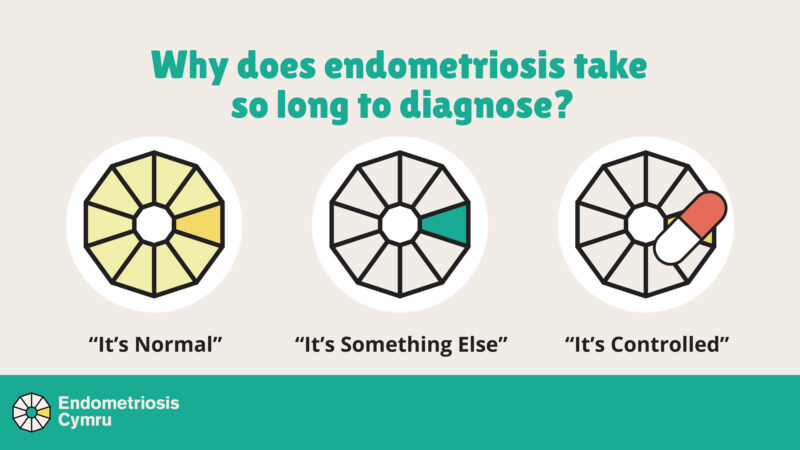Concerns about my care
How to raise a concern about my care
Sometimes, patients find that the healthcare they receive for their endometriosis symptoms – or other issues – is not satisfactory.
If you have concerns about your care or treatment, you should talk to the staff involved with your care as soon as possible. They will try to resolve your concerns immediately.
Queries, issues, and giving feedback to your hospital
Every hospital in Wales has a Patient Advice and Liaison Service (PALS) who work alongside hospital colleagues to give patients, their friends and families support, guidance and impartial advice.
They will listen to any concerns, suggestions, or queries you may have and act on that feedback to make improvements. This might be positive or negative feedback, or it might be queries about waiting times or how to find a particular service in the hospital.
Concerns, suggestions or queries may be made through the medium of English or Welsh; in person, in writing or by telephone.
If this does not help, or you do not want to speak to the staff, you can contact the health board or trust‘s complaints team.
If your concern is about the service you’ve received from a GP, you should ask the practice to look into your concerns. If you prefer you can ask your health board or trust‘s complaints team to do so.
The process for raising concerns or complaints in NHS Wales is called Putting Things Right.
Raising a complaint via your health board’s complaints team
You can raise a concern yourself or ask a carer, friend, relative, or independent advocate to represent you. You will need to give them written permission to do this.
Independent complaints advocates are available to every patient in Wales through an organisation called Llais.
To contact the complaints team in your health board area, you can visit the relevant page on your local health board’s website:
- Aneurin Bevan University Health Board
- Betsi Cadwaladr University Health Board
- Cardiff & Vale University Health Board
- Cwm Taf Morgannwg University Health Board
- Hywel Dda University Health Board
- Powys Teaching Health Board
- Swansea Bay University Health Board
What happens when you raise a concern?
Once you have raised your concern, the complaints team:
- will listen to your concerns to try to resolve them as quickly as possible
- will look into your concerns and speak to the staff involved in your care or treatment
- may offer a meeting to discuss your concerns
- will put you in contact with the right person to help you
- will let you know what they have found and what they are going to do about it.
The complaints team should respond to you within 30 working days of receiving your concern. If they cannot reply to you in that time, they will explain why and let you know when to expect a response. Some concerns may take longer to investigate.
Time limit for raising concerns or complaints
You can take up to 12 months to raise a concern or complaint. However, it is best to talk to someone as soon as possible.
If it has been longer than 12 months and there are good reasons for the delay, the complaints team may still be able to deal with your concern or complaint.
What to do if you are not satisfied with the board’s response
If you are not satisfied with the health board’s response, and if you haven’t done so already, you can contact Llais for additional advice.
If you remain dissatisfied with the outcome of your complaint, you can contact the Public Services Ombudsman for Wales.
The Ombudsman is independent, impartial, fair and open to all who need the service. It is free to use.
One of the Ombudsman’s main roles is to consider complaints about public service providers in Wales. This includes complaints about Welsh Health Boards and Trusts, health service providers, such as GPs, opticians, dentists and pharmacists, as well as, in some cases, private healthcare providers.
The Ombudsman can investigate complaints that people were treated unfairly or that an organisation did not follow the right process. In complaints about healthcare, they can look at whether decisions about care and treatment were correct.
About 4 in every 10 complaints that the Ombudsman receive are about healthcare. The Ombudsman asks people to be assured that their staff are well-used to discussing personal health issues and traumatic patient experiences and that they will handle any enquiries or complaints sensitively and with compassion.
Find more information about when the Ombudsman can investigate your complaint.
Their contact details are:
Telephone: 0300 790 0203
The Public Services Ombudsman can take calls in Welsh and English.
